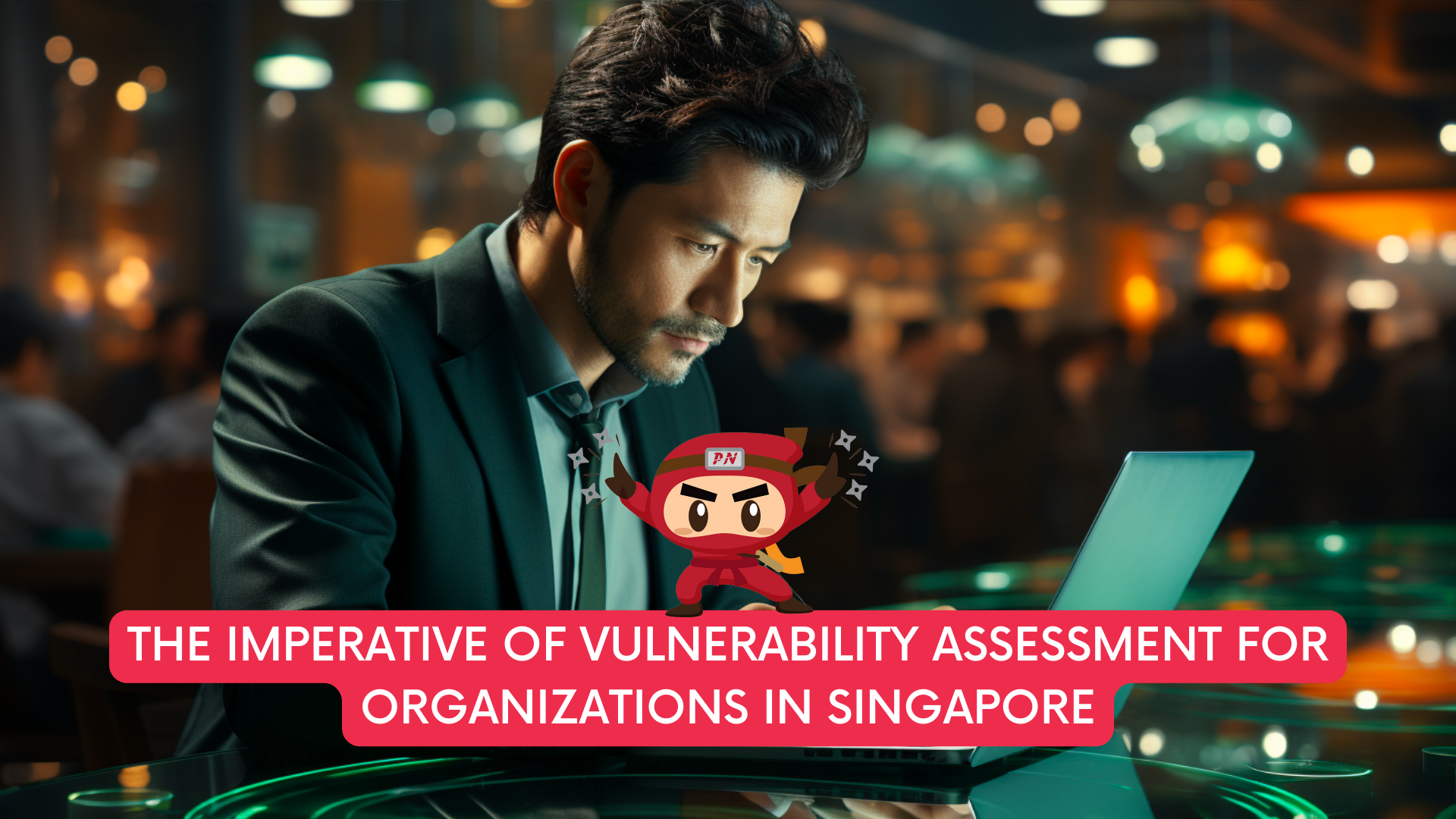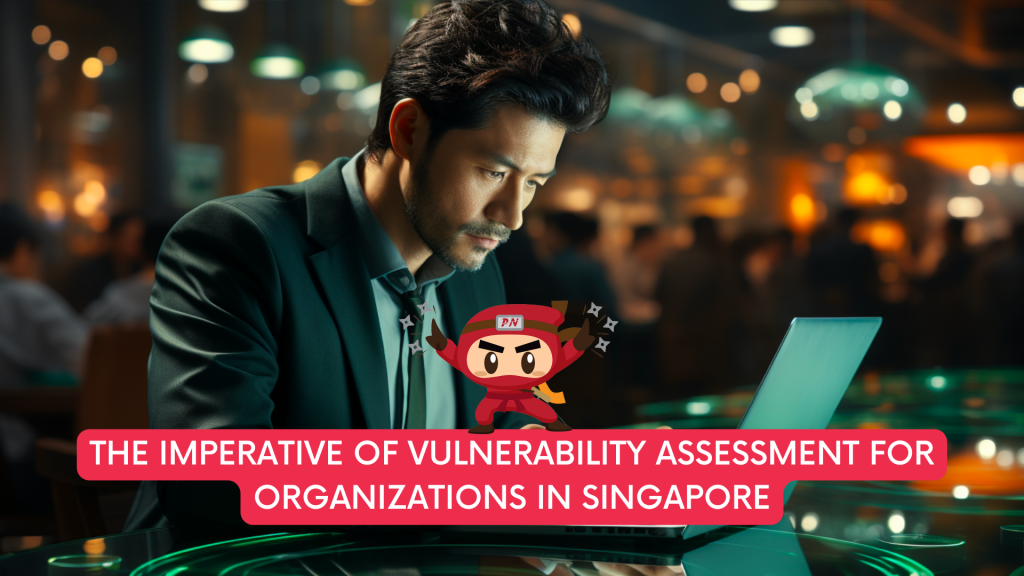KEEP IN TOUCH
Subscribe to our mailing list to get free tips on Data Protection and Cybersecurity updates weekly!







In an era where digital transformation and technological advancements drive business growth, the cybersecurity landscape has become increasingly treacherous. Organisations in Singapore are no exception, facing ever-evolving cyber threats that can jeopardise their operations, data, and reputation. As a proactive defence mechanism, vulnerability assessment plays a crucial role in identifying and mitigating potential security weaknesses.
This article delves into the significance of vulnerability assessments for organisations in Singapore, highlighting the need to embrace this essential practice to fortify their cybersecurity posture and safeguard against emerging threats.
The cybersecurity landscape is characterised by relentless innovation on both sides of the defence equation. Cybercriminals continually devise new attack vectors, exploit emerging technologies, and capitalise on human vulnerabilities to breach organisational defences.
In Singapore, the rise of advanced persistent threats (APTs), ransomware attacks, and nation-state-sponsored cyber warfare demands heightened vigilance from businesses. By conducting regular vulnerability assessments, organisations can proactively identify and address potential weaknesses before malicious actors can exploit them.
Vulnerability assessment is a systematic process that involves evaluating an organisation’s information systems, networks, applications, and endpoints to identify security flaws and weaknesses. This process employs specialised tools and methodologies to scan for vulnerabilities and prioritise them based on their severity and potential impact on the organisation’s security posture.
The insights gained from vulnerability assessments enable organisations to make informed decisions about risk management and allocate resources effectively.
Singapore has established a robust legal and regulatory framework to combat cyber threats and protect critical infrastructure. Compliance with data protection regulations, such as the Personal Data Protection Act (PDPA), is mandatory for organisations that handle personal data.
Additionally, specific industries, such as financial services and healthcare, have sector-specific cybersecurity guidelines to ensure the confidentiality, integrity, and availability of sensitive information. Conducting vulnerability assessments helps organisations align with these requirements and demonstrate their commitment to cybersecurity best practices.
Business continuity is paramount in maintaining competitive advantage and customer trust. Cyber incidents, such as data breaches or denial-of-service attacks, can disrupt business operations, leading to financial losses and reputational damage.
Vulnerability assessments enable organisations to identify potential points of failure in their IT infrastructure and applications, helping them build resilience and continuity plans to quickly recover from potential breaches or attacks.
In many cases, organisations may be unaware of hidden vulnerabilities lurking within their systems. These vulnerabilities may arise from misconfigurations, unpatched software, weak access controls, or third-party dependencies.
Without comprehensive vulnerability assessments, these weaknesses may remain undetected, providing a potential entry point for cyber attackers. Regular vulnerability assessments shed light on these hidden vulnerabilities, empowering organisations to remediate them before they can be exploited.

Customer trust is the bedrock of any successful business. In an increasingly interconnected world, customers entrust their personal and financial information to organisations with the expectation that it will be safeguarded.
A data breach or security incident can erode this trust, leading to customer attrition and reputational damage. By conducting vulnerability assessments, organisations can take proactive measures to secure customer data and demonstrate their commitment to protecting sensitive information.
Preventing cyber incidents is more cost-effective than mitigating the fallout from a breach. Investing in regular vulnerability assessments helps organisations adopt a proactive approach to risk management. By identifying and addressing vulnerabilities in the early stages, organisations can reduce the likelihood of successful cyberattacks and minimise potential financial and operational losses associated with breaches.
As the cyber risk landscape evolves, more organisations in Singapore are turning to cyber insurance to mitigate potential financial losses from cyber incidents. Cyber insurance providers often require organisations to demonstrate a commitment to cybersecurity best practices, including vulnerability assessments. By meeting these requirements, organisations can secure comprehensive and cost-effective cyber insurance coverage.
In the event of a cyber incident, an efficient and well-coordinated incident response is essential to minimise the impact. Vulnerability assessments contribute to an organisation’s incident response preparedness by identifying potential vulnerabilities and helping prioritise their remediation. This information equips incident response teams with valuable insights, enabling them to respond swiftly and effectively to cyber incidents.
Vulnerability assessment is a specialised process that requires expertise and experience. Engaging third-party cybersecurity experts allows organisations to leverage industry best practices and gain a fresh perspective on their security posture. These experts can conduct comprehensive assessments, identify unique vulnerabilities, and provide actionable recommendations to strengthen the organisation’s security defences.

In today’s hyper-connected and technologically driven world, organisations in Singapore must prioritise their cybersecurity efforts. Vulnerability assessment is a fundamental component of any robust cybersecurity strategy, enabling organisations to proactively identify and address potential weaknesses before malicious actors can exploit them.
By embracing vulnerability assessments, organisations can enhance their cybersecurity posture, protect sensitive data, preserve customer trust, and demonstrate their commitment to maintaining a secure digital environment. In a landscape of ever-evolving cyber threats, vulnerability assessments are a powerful tool that empowers organisations to secure their future and thrive in a digitally transformative era.
Your appointed DPO can work with you on your PDPA compliance, ensuring that there will be policies in place to make sure that the handling of personal data is PDPA compliant.
A Data Protection Officer (DPO) oversees data protection responsibilities and ensures that organisations comply with the Personal Data Protection Act (PDPA). Furthermore, every Organization’s DPO should be able to curb any instances of PDPA noncompliance as it is the officer responsible for maintaining the positive posture of an organisation’s cybersecurity.
DPOs complement organisations’ efforts to ensure that the organisation’s methods of collecting personal data comply with the PDPA. It also ensures that policies are set in place to make sure that there will be no instances of data breaches in the future.
Don’t wait any longer to ensure your organisation is PDPA compliant. Take our free 3-minute PDPA Compliance Self-audit checklist now, the same “secret weapon” used by our clients to keep them on track. Upon completion, we will send you the results so you can take the necessary action to protect your customers’ data. Complete the free assessment checklist today and take the first step towards protecting your customers’ personal data.